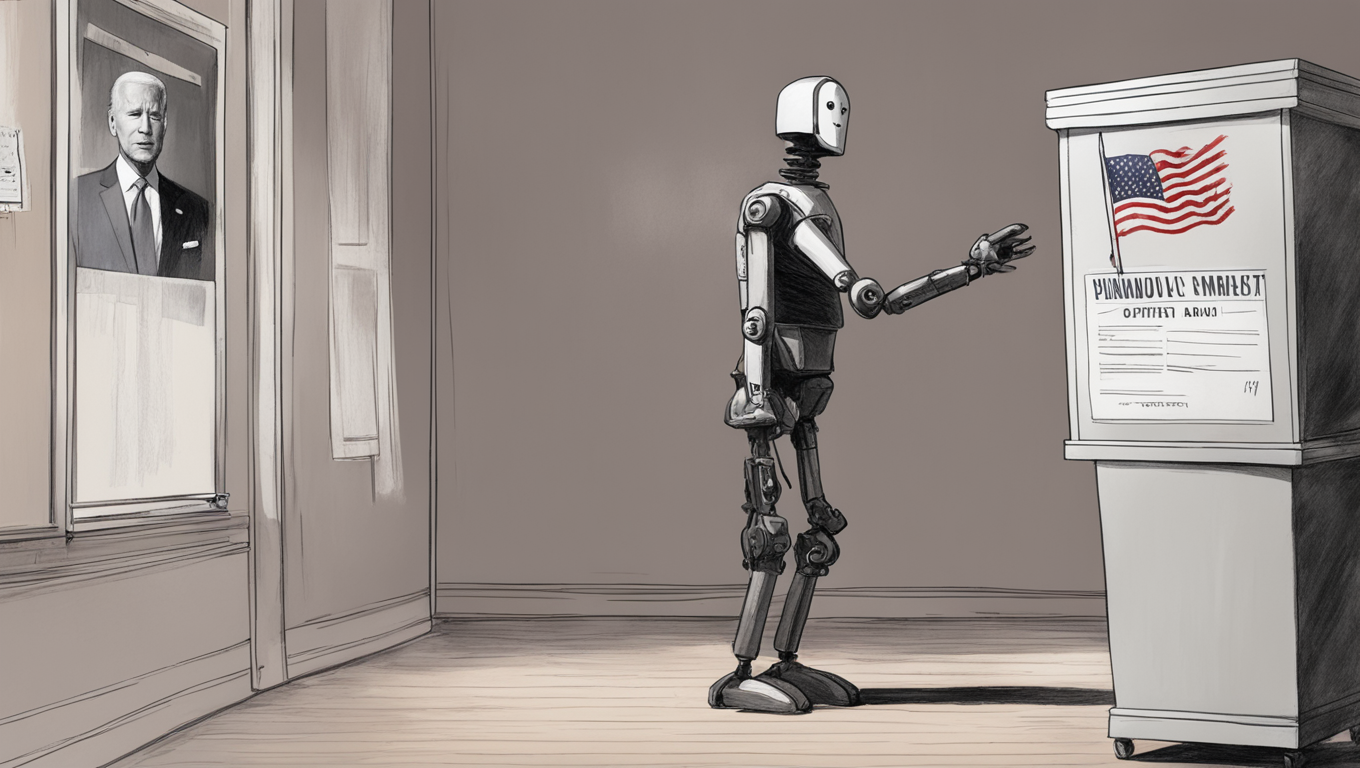In a groundbreaking development, a criminal investigation has been launched into the use of artificial intelligence (AI) to interfere with an election. The investigation is centered around AI-generated robocalls that impersonated U.S. President Joe Biden during the recent New Hampshire presidential primary. John Formella, the state Attorney General of New Hampshire, announced that a Texas-based pollster, Walter Monk, and his company Life Corporation, were responsible for making between 5,000 and 24,000 fake calls urging voters to stay home on primary day.
Speaking at a press conference, Mr. Formella emphasized the significance of this criminal investigation, stating, “It’s providing us a real-life example of an attempt to use AI to interfere with an election.” He further expressed concerns about the potential devastating effects of AI-generated recordings on the democratic election process. The robocalls were made two days before the primary, and their aim was to mislead voters into saving their votes for the November election.
The involvement of Life Corporation and Walter Monk has raised alarm bells not only in New Hampshire but also among other states. Mr. Formella’s letter warned that this attempt to disrupt the presidential primary election in New Hampshire could be replicated in future primary elections and caucuses across the country. As a result, the FCC’s Enforcement Bureau has issued a cease-and-desist order to Mr. Monk and his company.
Notably, this is not the first investigation involving Life Corporation and its subsidiaries. The FCC revealed that they have been subjects of previous illegal robocall investigations. As part of the ongoing investigation, subpoenas and preservation notices have been issued to Lingo Telecom, the company responsible for routing the fake President Biden robocalls.
An additional concerning aspect of these robocalls is the illegal manipulation of caller ID. They were made to appear as if they were coming from a number belonging to the “New Hampshire Democratic Chair,” potentially adding an extra layer of deception to the scheme.
It is worth noting that this criminal investigation comes on the heels of another case involving robocalls and voter intimidation. Last year, the FCC fined Republican operatives and their lobby company for using robocalls to intimidate voters leading up to the 2020 election. These instances highlight the growing concern and need for robust measures to protect the integrity of elections in an increasingly technologically advanced world.
Mr. Formella reaffirmed his commitment to ensuring the integrity of elections, stating, “We will not tolerate any action that seeks to undermine the integrity of our elections and our democratic process.” The message to those involved in such activities is clear: they will face swift repercussions.
As the investigation continues, the implications of this case reach far beyond New Hampshire. It serves as a stark reminder of the power of AI and the potential threats it can pose to democratic processes. Safeguarding the integrity of elections will require ongoing vigilance and proactive measures to prevent similar attempts from succeeding in the future.





Use the share button below if you liked it.